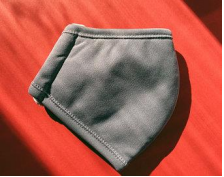TO MASK OR UNMASK – By By Dr. Sanjiva Wijesinha
SOURCE:Thomiana July 2020 – S.Thomas’ OBA VIC – Newsletter

The first time I visited Japan, I was surprised to see so
many people wearing facemasks, of a type similar to what I
used to wear when working as a surgeon in the operating
theatre.
It seemed so incongruous to see so many folk walking
through the busy streets with their faces covered, scurrying to catch trains and browsing around the supermarkets. When I asked my daughter (who at the time had been working in Japan for the past
few years) what this was all about, she explained this as another manifestation of what it means to be Japanese – to care more about the society and the community one lives in rather than one’s own self.
Why these people were wearing masks, she explained, was because they had some
respiratory infection – a cough, a cold or even just a runny nose. Wearing a mask was a precaution to avoid passing their germs on to others. People wore masks not so much to protect themselves but to protect the folk around them from the germs they might be carrying.
We often forget that when we sneeze, cough or even just speak to others, we are spraying
innumerable droplets of moisture from our mouth and throat into the air around us. I recall how when we were at College we had a wicked nickname for one of our teachers – he was called “Aerosol” because we could see the spray coming out of his mouth when he was talking, especially when he got excited! But it was not just him – ALL of us spray invisible droplets from our mouths and throats. If these droplets contain infective germs, then anybody within “catching” distance of our spray can be infected by our droplets.
So all this business of wearing masks during the time of the COVID-19 pandemic is a good
thing because it protects those around us. The Corona virus – just like the common cold virus – is contagious, and any of us could be harbouring the virus in our throats without showing any signs of disease.
How many times have we had colleagues coming to work, sniffling and sneezing and blowing their noses, when they should have been staying at home and resting? If they don’t want to
take a day of sick leave and confine their germs to their own homes, then they should only come to work if they wear a mask to prevent themselves giving their germs to those with whom they get close to on the bus, the tram, the train or the workplace.
Wearing a mask these days is not a sign of weakness or having your freedom suppressed or
“living in fear of the virus”. It is a sign that you are educated and informed enough to know that you could be showing no symptoms and still be harbouring the virus that you can pass on to others.
Wearing a mask during these COVID-19 times (and hopefully when we return to “normal”
times, even if you are having a cough or cold or upper respiratory infection) is a sign that you are being considerate to others, that you have in mind the safety of others.
Just as in Japan, our ethos should be to consider the welfare of those around us even if we
find masks uncomfortable – or think they make us look strange!

Sanjiva Wijesinha (STCML 1956-1967) is an associate professor at the Faculty of
Medicine, Monash University, Melbourne.
More health articles may be found on his webpage at sanjivawijesinha.com








No Comments